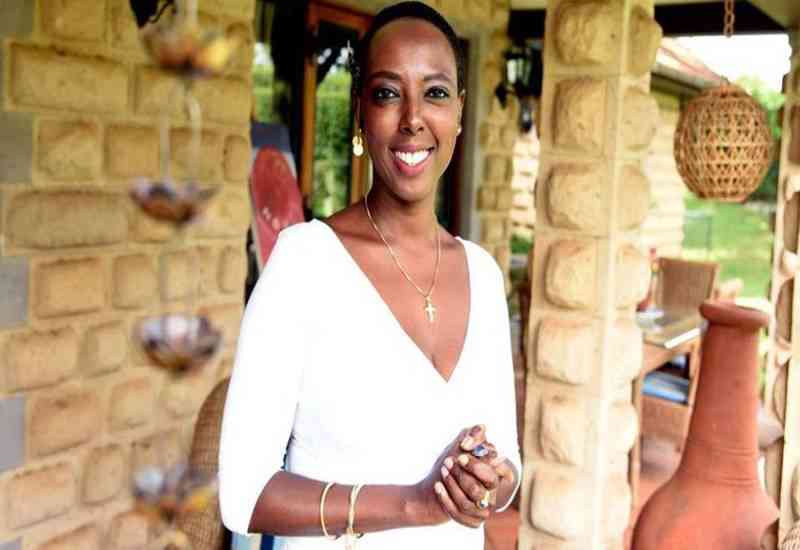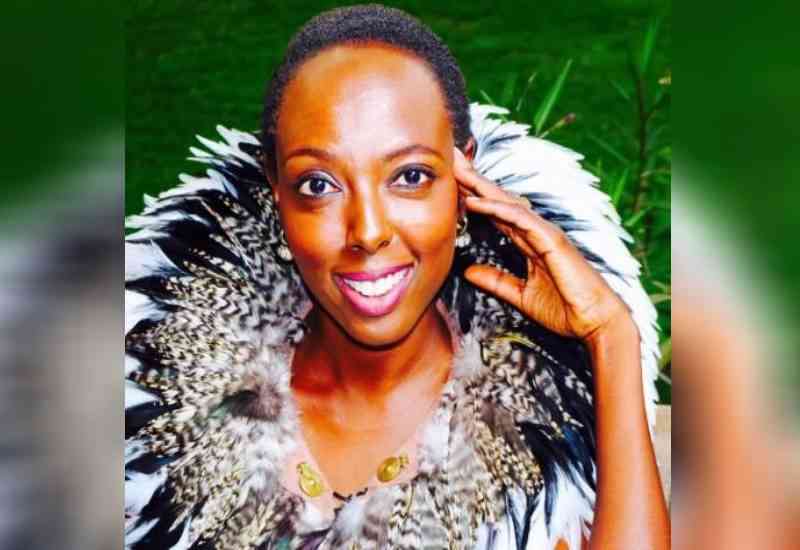
Kenyans have witnessed the first generation build an enterprise from scratch, the second generation propelling it like a meteor, only for the third generation to quickly extinguish it.
This has been Wanja Michuki, a family business systemic coach, biggest preoccupation in recent years.
Ms Michuki is the daughter of the late powerful politician and tycoon John Michuki, who built a multi-billion business empire.
She says family businesses and the families that own and manage them are uniquely defined by complex multi-generational dynamics that have the potential to either grow and sustain them or tear them apart.
Barring the family business enterprise that die a natural death, she believes that if many families took certain proactive steps, the collapse of most families can be forestalled.
She sat with Silas Nyanchwani at the Columbia Global Centres in Nairobi where she is partnering with Columbia University to start a program where she will be sharing her research and experience in the area of family enterprises.
Ms Michuki broke down what families do wrong, and how it can be rectified.
Your family's business empire experienced some succession strife after the passing of your father...
I cannot comment in detail about my family's succession case as it is a matter in court and so it is sub judice (prohibited from public discussion).
What I can say is that the experience has given me great insight into what goes wrong in succession cases. As a family enterprise coach, consultant, and advisor I have learnt that family succession issues are systemic and the biggest cause of strife is interpersonal dynamics and dysfunctional communication and behavioural patterns in families and in the enterprise and ownership systems.

Family members must learn to communicate transparently and honestly with each other in these three spheres - family, ownership, and enterprise.
This requires respecting every member of a family - every beneficiary - as an equal voice, whether you like them or not.
Stewardship is very important - selecting the right successor. Most parents know who is likely to ensure that all beneficiaries are treated fairly and will establish the right structures for the preservation, growth, and management of the inherited capital.
Sometimes this choice of successor does not please other beneficiaries, for instance, if the choice of the parent is younger than others or if they are ethical.
However, the misplaced authority will fragment the family.
What lessons did your father impart on ensuring a family enterprise survives the next generation?
I can only speak for myself.
He taught me that one's purpose in life is more important than money. This principle is really important for succession because it builds the spiritual capital of having money. It answers the question: "What is this money for?"
What he demonstrated was that his financial capital was to create employment and to create social capital through political life.
As an MP in those days, one's major responsibility was the welfare of others and he was conscientious about that. Politics was his avenue to philanthropy.
This is something he and my mother worked so well together on and exposed us to. We often went to campaigns and when you do grassroots campaigns, you very well understand the plight of others.
He also invested in the family's human and intellectual capital by sending us to good schools and universities. So he really did his part.
He was also very caring as a parent and that is also essential. In succession, beneficiaries must truly care for each other's welfare. This is why we have a systemic coaching approach in our work.
You must deal with the reality that people develop their own characters and personality traits. So it is equally important for family members to really know and understand each other in adulthood for them to respect and support each other's ambitions.
Essentially, successor generations (sibling partnerships or cousin confederations) should understand that wealth is more than money.
It is what you do with that financial capital and how you develop the family's spiritual, human, intellectual, and social capital for the betterment of the world you exist in that counts.
This is what will make an individual purposeful and happy. Isn't that what we are here for?

What is the weakest link or the biggest problem family enterprises face?
Interpersonal dynamics. Addressing communication and behavioural dynamics in families. The weakest link is ignorance around this.
Most people don't have the clarity and perspective about what is going on in their families. People are given roles they can't escape from.
You have the hero, the scapegoat (black sheep), the identified patient (addict), and the mascot (comedian) who deflects what is going on in the family with jokes, but it is another way of checking out.
The inability of people to communicate with each other authentically is why many family enterprises fail.
Who is responsible for the situation?
It is not a blame game. It boils down to the two people who start a family not managing their anxieties well and end up projecting them to their children.
Children handle it differently depending on their personalities. It is multi-generational and one has to look at how parents met and also look at how the children will also form their families with people from different backgrounds.
There is sometimes a tussle between the first and second generation when it comes to power transfer. how can this be addressed?
It is actually a global phenomenon, not necessarily African. It is a tussle between acquirers and inheritors of wealth. The two have different personality profiles.
Acquirers take risks, sacrifice to create wealth, and rarely indulge in the wealth they create.
They are like immigrants into a new land. They give their children (inheritors) a life of luxury. Inheritors want to preserve the wealth, and some diversify so that they don't lose, and they are more risk averse than acquirers of wealth.
What people need is an awareness of this. Inheritors especially can be too cushioned to be self-aware of this...
How do we help inheritors?
Through storytelling. And you have to take a multi-generational perspective. Most parents don't tell their children the nitty-gritty of how they truly grew up or what they had to sacrifice.
Inheritors need to be taught six dimensions of wealth; financial, spiritual, social, intellectual, human, and structural. Your storytelling is your spiritual capital. It is how we make sense of our existence.
Through stories, you establish values. Who we are? Where did we come from? It requires deep introspection. Value systems differ from family to family. The critical dimension is structural capital which touches on the governance system within the family that manages the wealth, and it goes beyond the boardroom.
Families have a governing council. Family councils play two roles, for members who don't sit on the board, the council bridges the gap. It also helps those who are struggling with timely intervention. Thus, it gives people a sense of belonging.
Is there a gender dynamic in how family wealth is distributed?
Certainly, there is. Gender and age. Because ours is a patriarchal culture, boys and men or brothers can be entitled to speak, and make decisions without consultation or consideration. It could be an age thing, where one feels if he or she are older, they think they have a large voice. And this can create discord. For this system to work, everyone belongs, and everyone is equal. Nobody's opinion should be invalidated.
Why do Asian families seem to do better in succession than Africans?
The problems are the same across the board, only that some communities are more conscious and will put in place the right structures. Asians bring their children into the business quite early. Thus, they get to understand the business from the bottom to the top by the time they are coming into management. Whether it is a dukawalla or a large enterprise.
However, this is also changing even for Asians because the kids go to study abroad and they get jobs, and they don't want to come back. In Africa, speaking generally, children were not brought in at an early life. So, they don't know what is happening until later when the opportunity to mentor the next generation has not been used very well. People who are aware of the need do that.
Most families outsource the succession responsibilities to lawyers. how they avoid being cheated out of their wealth?
Lawyers should come after families have done the work to create a common vision, mission (basically how they are going to attain that vision) and values that will underpin their values and behaviours. The lawyers' role is to formalise what the family has agreed. When a family goes to a lawyer or a wealth manager and they are not a cohesive unit, some unscrupulous lawyers can take advantage of this disunity and the longer the disunity, the more they will profit from it. A good lawyer will advise the family to sort out their internal problems.
You run the Be Bold initiative. how can it help parents and children to understand their respective roles in maintaining and sustaining the businesses?
We help train through the talent development part for entering into a family business, having the interviewing process to come into the business. What are your skills and qualifications? People now recognise that people have to do this, much more like the psychometric test, and this increases the chances of success multifold. Because family enterprises should be run with the same seriousness as other big corporations.
And then there is the issue of favoritism and sidelining of the black sheep...
It is all about awareness. When parents favour a particular child or children, it could be they see a reflection of themselves in the child or they think they will carry their parents' dreams. And this can bring resentment. Most parents are not even aware of this. And that is why our training can be helpful. They need to balance their treatment of various children.
Children have different qualities, away from academics such as empathy, humour, and such. We explore domains of interdependence and what gift each member brings to the family. Parents need to be careful not to put the burden of performance on the child.
The scapegoat always tells the truth about the family. They are often denied a voice, yet this should not be the case. Scapegoats if driven to the extreme will kill themselves. Some family members can cut themselves off and the rest will ignore them in order not to be responsible. And those kids who loved too much may stop being accountable as they become narcissistic and veer toward sociopathic behaviour.
 The Standard Group Plc is a multi-media organization with investments in media platforms spanning newspaper print
operations, television, radio broadcasting, digital and online services. The Standard Group is recognized as a
leading multi-media house in Kenya with a key influence in matters of national and international interest.
The Standard Group Plc is a multi-media organization with investments in media platforms spanning newspaper print
operations, television, radio broadcasting, digital and online services. The Standard Group is recognized as a
leading multi-media house in Kenya with a key influence in matters of national and international interest.

